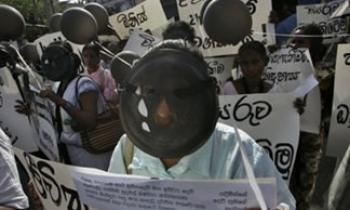A newspaper war is about to begin on the streets of London, involving Rupert Murdoch's News International and Associated Newspapers, owners of the Evening Standard. Londoners, for a while at least, will have a choice of three evening papers, two of them free. This has caused excitement in the metropolitan press, particularly on the media pages.
But the real story has been missed. Across most of England and Wales, almost without anybody noticing, the evening newspaper has disappeared.
When I was a child, I waited impatiently for its delivery. There was then no internet, no Ceefax, no local radio, little daytime TV and only occasional BBC radio news bulletins. I would eagerly scan the local paper for the teatime cricket scores. Sometimes, it also carried what, to me, was the first news of events such as the launch of Sputnik.
Now a survey of 58 "evenings" in Press Gazette, the journalists' trade paper, shows that 38 have final print times of noon or earlier. Some go to press as early as 7.30am, and five print overnight. They have become morning papers, not even afternoon papers. Newcastle's Evening Chronicle, which had a final print time of 4pm two years ago, goes to press at 10am. The Leicester Mercury - the one I awaited so eagerly - is done and dusted by 10.45am. In England, the latest edition time the survey found was 2.45pm at the Express and Star, Wolverhampton.
Only in Scotland, where internet use is less common, do some real evening papers survive. Indeed, in Glasgow and Edinburgh, a morning paper - the Daily Record - is planning afternoon editions available from 3pm.
I understand the editorial logic. Few people now get breaking news from print. If they hear of an alleged plot to blow up transatlantic aircraft - a story that broke too late for many "evenings" - most will visit a website to learn how it affects their travel plans, rather than rush out to buy a paper.
So the idea is that papers concentrate on the best possible local exclusives and features, and get them into the shops as early as possible. A paper published at 7.30am will still be bought at 4pm.
But a final edition published at 4pm will not be bought the following morning. In any case, you probably have as good a chance of breaking a big story at 7.30am as at 4pm - the bombings in Turkey, say, which came too late for most nationals, or a big local fire - with the bonus that your readers, having been asleep for several hours, won't have had time to get sick of it. A daytime breaking story can be covered on the website, the first source of news for growing numbers of readers.
All this, I fear, is wishful thinking; the real motive is to cut costs, since it's obviously cheaper to print fewer editions.
Newspapers thrive on urgency and the capacity of the local "evenings" to get news on the streets in minutes, complete with billboards, was their unique selling point. Overnight printing leads to a blander, duller product. Almost every local paper has a monopoly in its local print market, and is owned by a corporate conglomerate that cares more for the short-term share price than for building reader loyalty. As a result, evening papers are going the way of greengrocers and village pubs, and it is all very sad.
Seriously flawed
In the latest British Journalism Review, a contributor called Peter Glover criticises the BBC and the press for propagating the "myth" of man-made global warming. Glover, though he refers to "we journalists", is neither a journalist nor a scientist. He is a Bible-thumping blogger who trades on being anti-liberal and (yawn) "politically incorrect". His article quotes widely from TCS Daily, an online journal sponsored by ExxonMobil, General Motors and McDonald's among others. He reheats the dreary, ill-informed tripe that Melanie Phillips and other press pundits have peddled for years. His charge that the media pays too little attention to global warming sceptics is the opposite of the truth. Only last Monday, Tim Hames in the Times supported the latest sceptic argument.
Yet global warming has created the nearest thing possible to a scientific consensus. The politics are on the other side. Glover is one of several British bloggers trying to repeat the trick pulled off by the American right: of convincing the public that established papers and broadcasting channels are dominated by diehard leftists.
Since journalism is not a learned profession, the BJR is not a learned journal, though it has the appearance of one and is published by Sage, which also puts out such esoteric titles as the Journal of Contemporary Ethnography. It is run by retired Mirror hacks, who mostly do a decent job. I do not want British journalists to imitate the Americans and start taking themselves seriously. But I approve of the BJR's aspiration, stated on its website, "to raise the level of the dialogue". On this evidence, it is failing.









